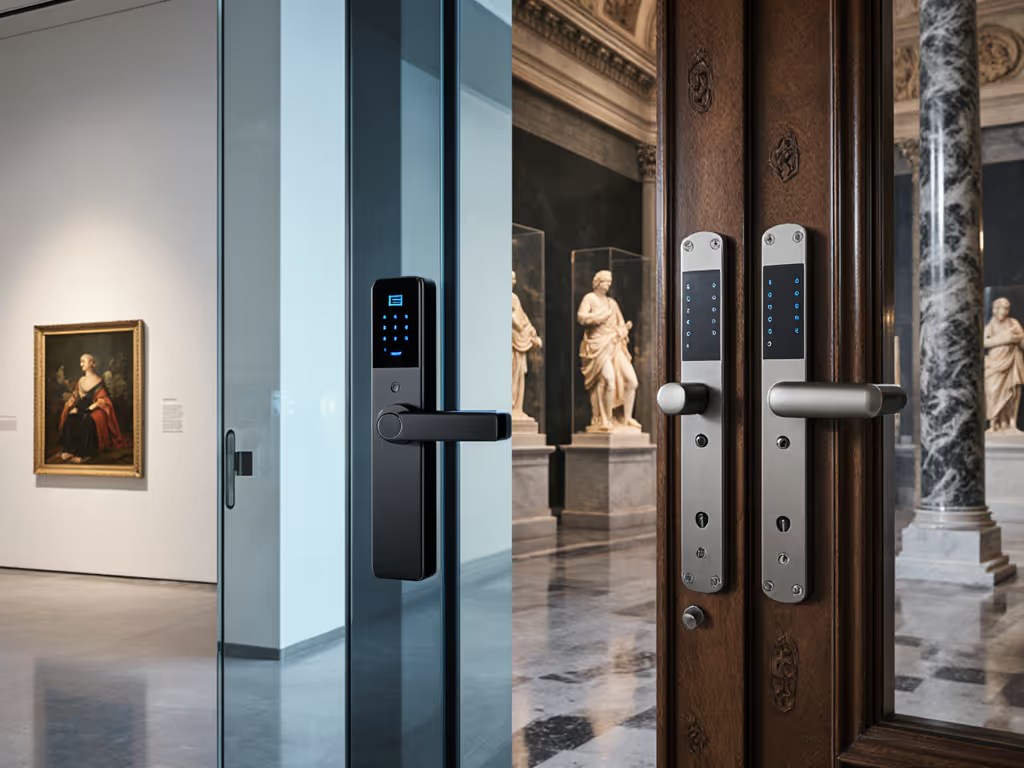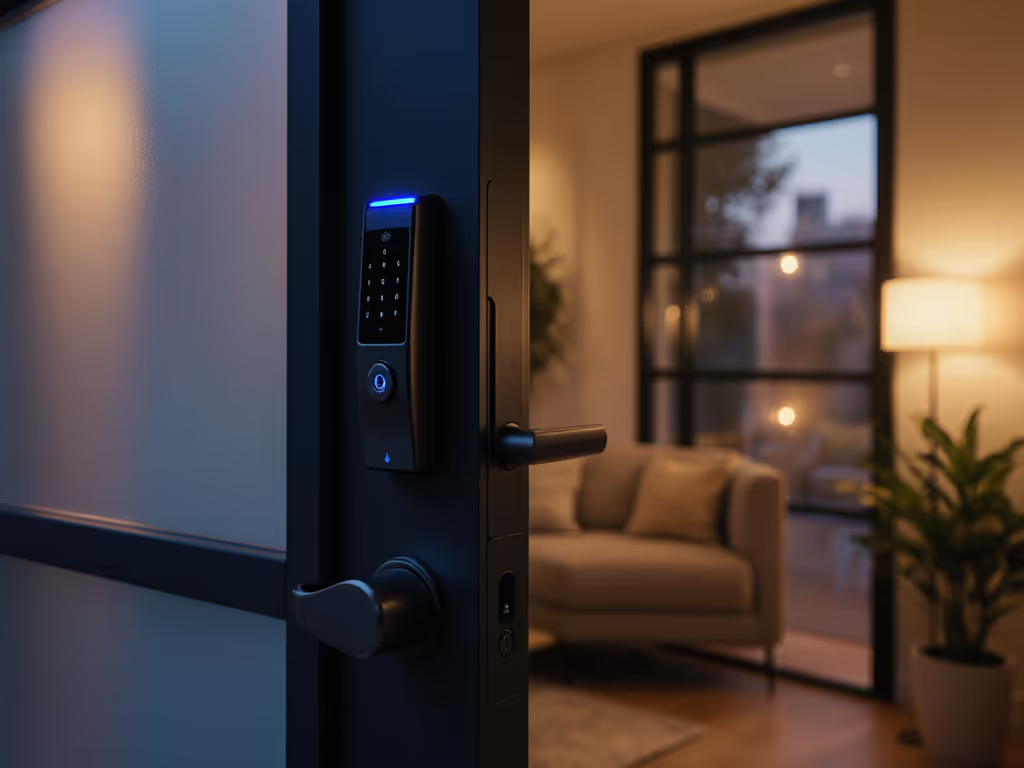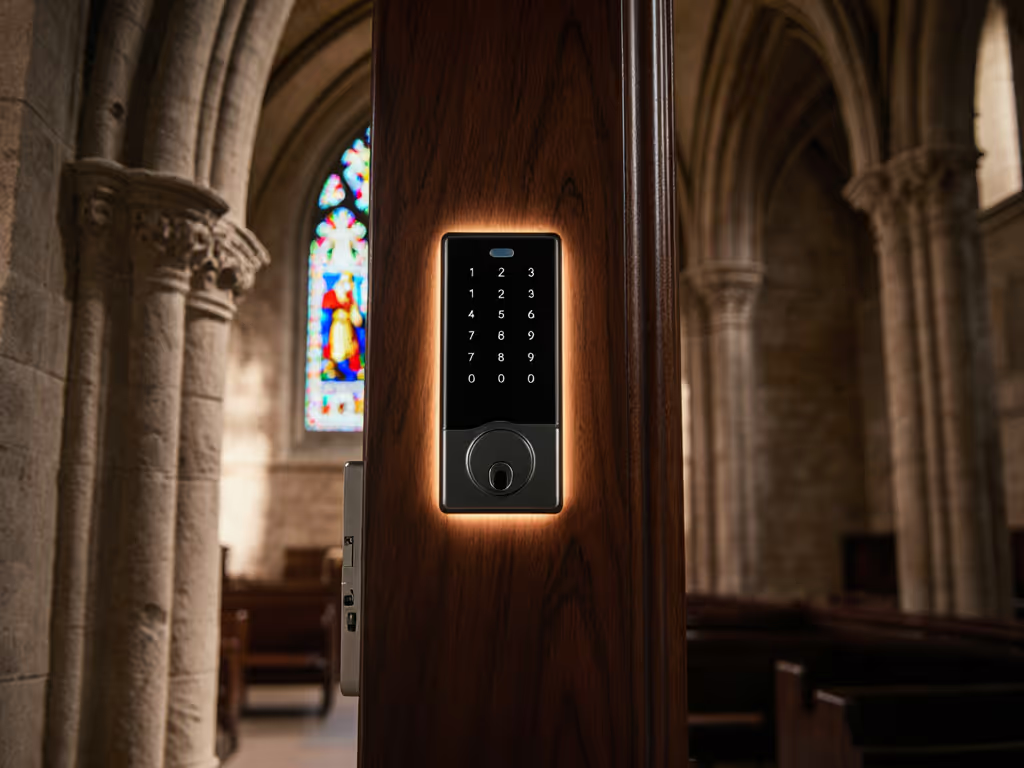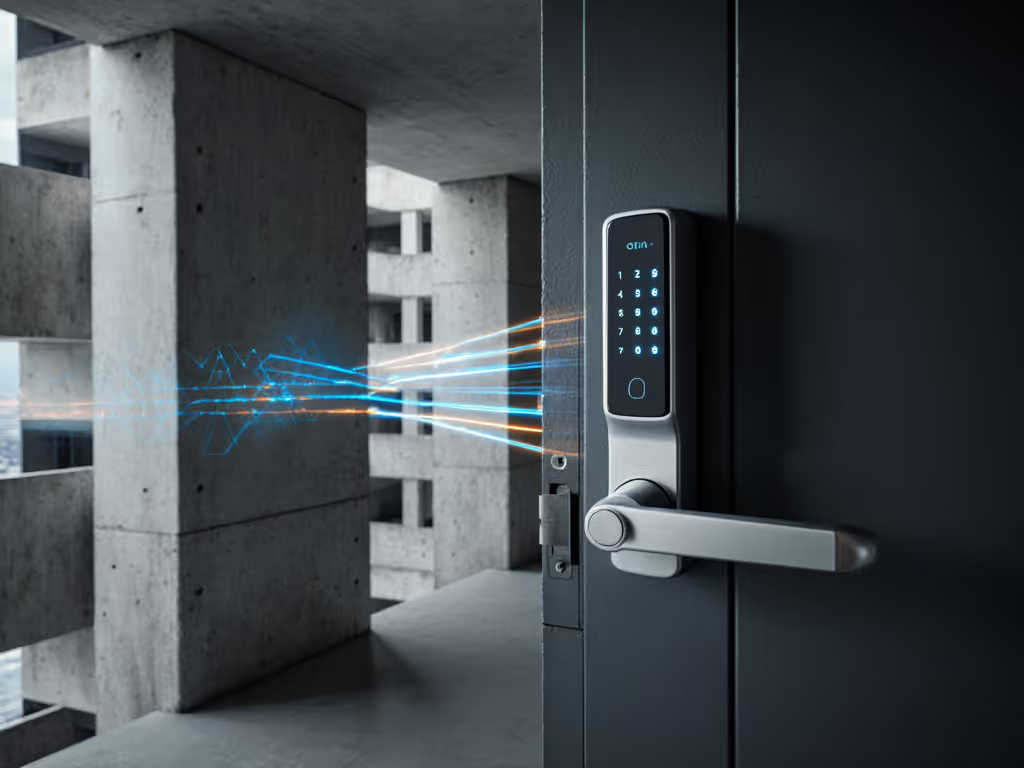
Budget vs Premium Smart Locks: What You Really Pay For
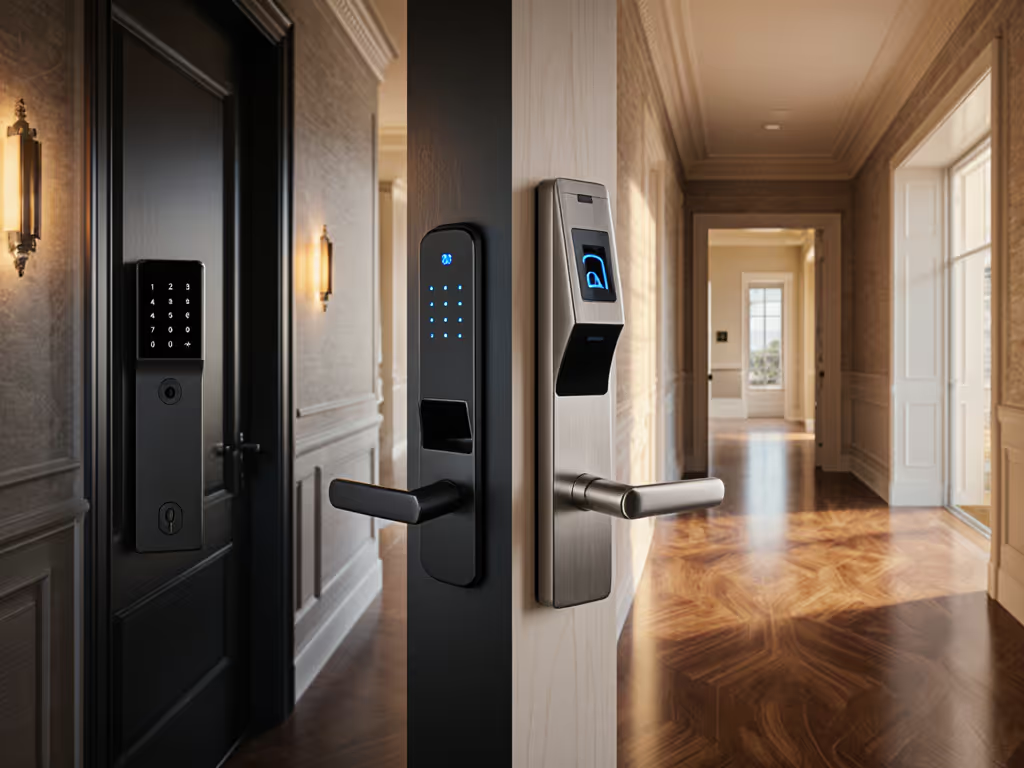
When you're weighing budget vs premium smart locks, it's crucial to understand what you're actually paying for, and what you might be sacrificing. Many homeowners focus solely on price or digital features, overlooking the physical foundation that makes any lock truly secure. As someone who's seen countless installations, I'll tell you: Secure the door first; then add brains that respect privacy. I recently helped a neighbor whose premium smart deadbolt froze during a blizzard. The batteries sagged, the strike plate alignment was off, and the backup key wouldn't turn. To prevent lockouts when batteries die, see our 9V emergency power fix for practical access options and battery tips. We spent hours warming the latch, realigning the plate, and installing a simple offline keypad (before reconnecting the smart features). That experience reinforced my core belief: usable, reliable mechanics always come before digital convenience. In this smart lock price comparison, I'll help you avoid costly mistakes while finding the best deadbolt smart locks that match your needs without compromising security or privacy.
Why Physical Security Matters More Than Digital Features
The Foundation of Any Smart Lock
Before you even consider Wi-Fi connectivity or fancy app features, you need to assess your door's physical security. A smart lock is only as good as the deadbolt it's attached to and the door it's installed in. I've seen too many homeowners invest in expensive smart locks only to discover their hollow-core doors or worn-out strike plates make the whole system vulnerable.
When evaluating a door for smart lock installation, check these critical elements:
- Door thickness and material (solid wood or metal doors provide the best foundation)
- Existing deadbolt quality (look for ANSI/BHMA Grade 1 or 2 hardware)
- Strike plate alignment (misaligned plates create security gaps and mechanical stress)
- Spindle tolerance (the rod connecting interior and exterior mechanisms must move smoothly)
- Latch torque (the force required to throw the bolt shouldn't be excessive)
The Budget Lock Trap
Budget smart locks often cut corners where it matters most, physical security. Many budget models ($50 to $150) use lower-grade components that wear out quickly or can't withstand forced entry. These locks frequently have:
- Weaker motors that struggle with door misalignment
- Plastic components that degrade over time
- Inadequate latch torque that makes them vulnerable to shimming
- Poor strike plate design that creates security gaps
I recall a tenant who installed a budget smart lock that worked perfectly for months, until winter came. Temperature changes caused the door to swell, and the weak motor couldn't overcome the friction. The lock would "think" it was locked when it wasn't fully engaged. This is why I always emphasize: Measure twice; tighten once. Take the time to ensure your door mechanics work properly before adding smart features.
What You're Paying For: Budget vs Premium Smart Locks
Budget Smart Locks: Basic Features at Lower Cost
Budget smart locks ($50 to $150) typically offer basic functionality without many bells and whistles. They usually provide:
- Simple keyless entry via numeric keypad
- Basic Wi-Fi or Bluetooth connectivity
- Limited app functionality
- Basic access code management
While these locks seem like a cost-effective door security solution, they often come with significant trade-offs:
- Limited privacy protections: Many budget locks require constant cloud connectivity, creating privacy risks
- Poor mechanical reliability: Weak motors that fail with door misalignment
- Shorter lifespan: Budget components often fail in 2-3 years
- Limited physical security: May lack proper ANSI/BHMA certification
- Spotty updates: Manufacturers often abandon budget lines quickly
For renters, budget locks can be appealing due to lower cost, but verify whether your landlord allows modifications. Many budget models require removing the exterior knob or handle, which violates typical rental agreements.
Mid-Range Smart Locks: The Sweet Spot ($150 to $300)
This price bracket represents what I consider the "sweet spot" for most homeowners. These locks balance physical security with smart features while respecting privacy concerns. Quality mid-range locks typically offer:
- ANSI/BHMA Grade 1 or 2 certified deadbolt mechanisms
- Stronger motors that handle door misalignment gracefully
- Local-only operation options (no mandatory cloud)
- Better app functionality with meaningful privacy controls
- Longer warranty periods and better support
The real value in this range is mechanical reliability. Premium motors and quality components withstand daily use, temperature fluctuations, and minor door misalignments that would disable budget models. This is where you get the best cost effective door security that lasts.
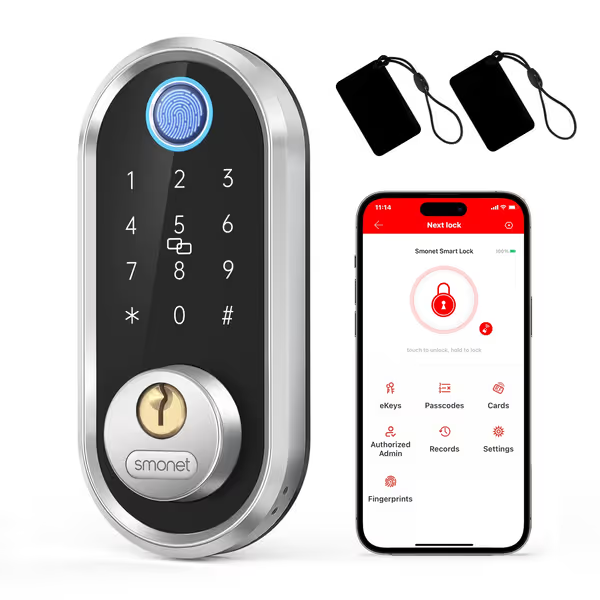
SMONET Fingerprint Electronic Deadbolt
Premium Smart Locks: Beyond the Basics ($300+)
At the premium end ($300+), you're paying for features that may or may not be valuable to you. These locks typically offer:
- Multiple connectivity options (Wi-Fi, Bluetooth, Z-Wave, etc.)
- Advanced security sensors and tamper detection
- Longer battery life with better low-battery warnings
- Superior physical security ratings
- Better integration with home automation systems
- More robust privacy protections and local control options
The premium price makes sense if you specifically need:
- Multi-user access management for short-term rentals
- Advanced integration with home security systems
- Biometric authentication beyond basic fingerprint
- Long-term vendor support and firmware updates
However, many premium features are only valuable if you'll actually use them. That said, premium locks often have the strongest door prep and fit tolerances, making them more forgiving on imperfect doors.

Schlage Encode Plus Smart WiFi Lock
What Truly Matters: The Critical Middle Ground
Physical Security First
Regardless of price point, here's what you must prioritize:
- ANSI/BHMA Grade certification: Look for Grade 1 or 2 certification (Grade 1 being highest)
- Solid mechanical operation: The lock should work flawlessly without power
- Renter-friendly installation: No permanent modifications to exterior hardware
- Local control options: Ability to operate without cloud connectivity
- Transparent privacy policies: Clear data handling practices
I've worked with homeowners who prioritized app features over physical security, only to discover their "smart" lock wouldn't even engage properly with their door. Remember, no amount of digital sophistication can compensate for poor door prep and fit.
Privacy and Reliability Over Novelty
Many smart lock shoppers get distracted by flashy features that compromise privacy or reliability. Instead, focus on:
- Local-first operation: Can the lock function without internet?
- Open standards support: Does it work with Matter, Thread, or other open protocols?
- Transparent data practices: Where does your access data go?
- Mechanical backup: Does it include a physical key option that actually works?
- Long-term support: Does the manufacturer commit to firmware updates?
The Renter's Dilemma
Renters face unique challenges with smart locks. Most landlords won't approve modifications that alter the exterior hardware. Look for:
- Keypad overlays that work with existing deadbolts
- Rental-friendly installations that don't require drilling
- Reversible modifications that leave no trace when removed
- No exterior hardware changes that would violate lease terms
I've helped many renters add smart convenience without violating their leases by focusing on interior modifications only. Measure twice; tighten once applies doubly when you're working with someone else's property.
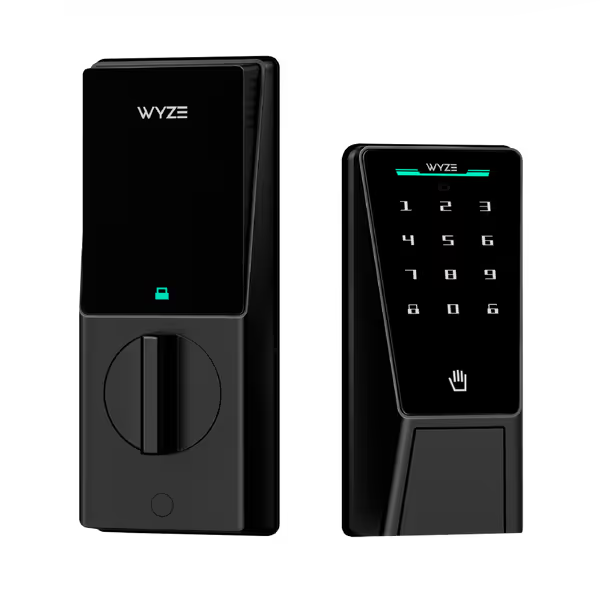
WYZE Palm Lock
Making the Right Choice for Your Needs
Evaluate Your Door First
Before you even look at smart locks, assess your door:
- Check your existing deadbolt's quality. Is it ANSI/BHMA certified?
- Test strike plate alignment: Close the door and see if the bolt slides smoothly into the plate
- Verify door thickness and backset measurements
- Check for door warping or misalignment
- Determine if your door has adequate clearance for smart lock installation
Consider Your Specific Needs
- Homeowners: Prioritize physical security ratings and long-term reliability
- Renters: Focus on reversible installations and no exterior modifications
- Short-term rental hosts: Look for robust guest management without cloud dependency
- Privacy-conscious users: Seek local control options and transparent data policies
My Top Recommendations
For most homeowners seeking a balance of value and security, the mid-range options deliver the best overall package. Look for:
- Strong physical security ratings (ANSI/BHMA Grade 1 or 2)
- Local control options without mandatory cloud
- Good mechanical reliability that handles door misalignment
- Transparent privacy practices
- Renter-friendly installation options if needed
Remember: The best door smart lock isn't the most expensive one: it's the one that works reliably with your specific door while respecting your privacy.
Actionable Next Steps
Before purchasing any smart lock, take these steps:
- Assess your door mechanics: Does your current deadbolt work smoothly?
- Check your lease agreement if you're a renter
- Verify compatibility with your specific door measurements
- Research privacy policies of potential manufacturers
- Prioritize mechanical reliability over digital features
The most important thing I've learned from years in this field is that the best smart lock door solution starts with the door itself. Many homeowners rush to add digital features only to discover they've compromised basic security in the process.
If you're unsure where to start, begin with a simple deadbolt upgrade that meets ANSI/BHMA standards. Once you have physical security sorted, then consider adding smart features that respect your privacy and work with your actual door mechanics. Measure twice; tighten once applies to both your installation process and your purchasing decision.
Your door's security should never depend on a functioning internet connection or a company's business model. Choose smart locks that enhance, rather than replace, proven mechanical security. That's how you get true cost effective door security that lasts.

